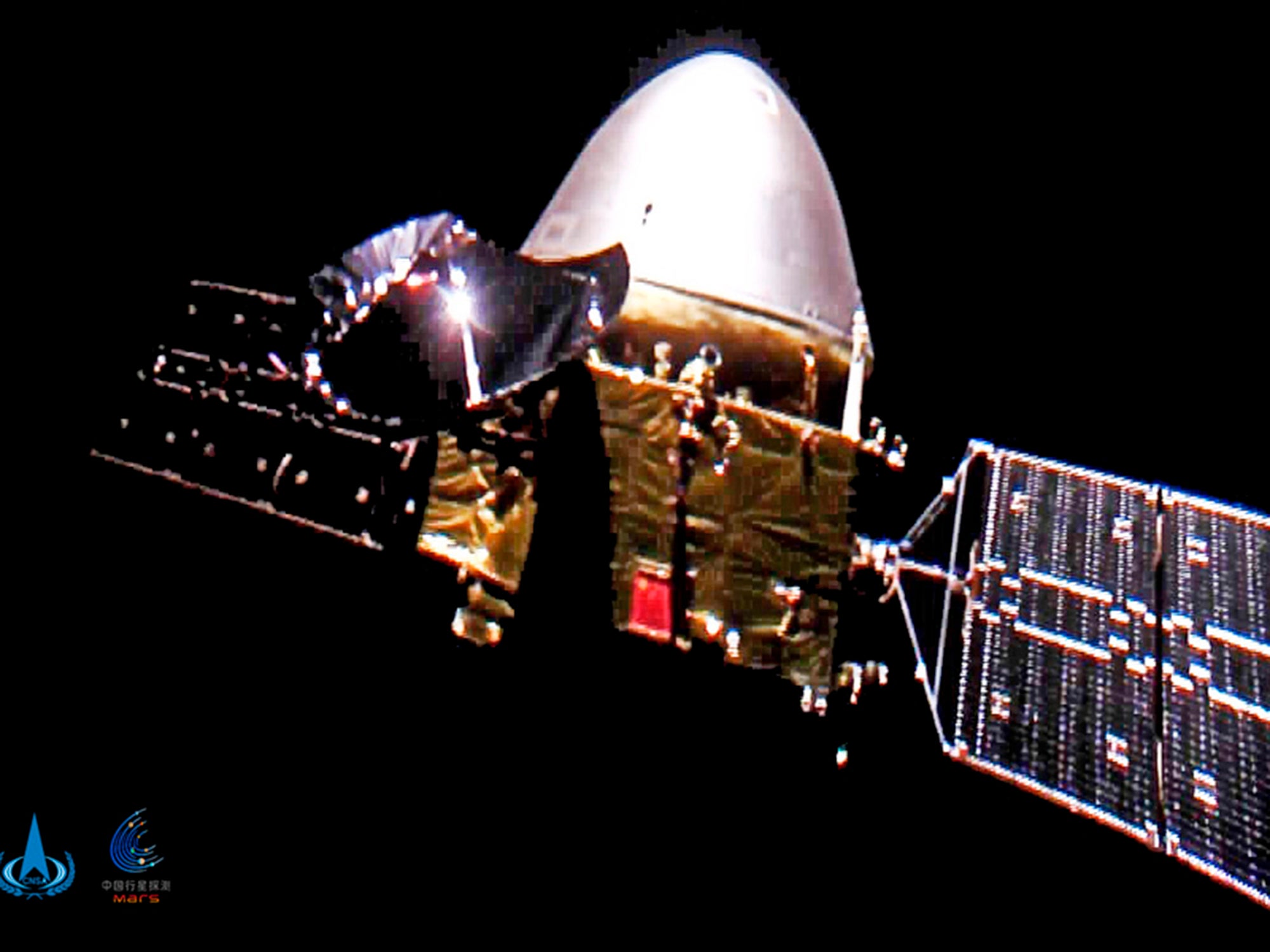China names Mars rover for traditional fire god
China's space agency says its first Mars rover will be named Zhurong after a traditional fire god

Your support helps us to tell the story
From reproductive rights to climate change to Big Tech, The Independent is on the ground when the story is developing. Whether it's investigating the financials of Elon Musk's pro-Trump PAC or producing our latest documentary, 'The A Word', which shines a light on the American women fighting for reproductive rights, we know how important it is to parse out the facts from the messaging.
At such a critical moment in US history, we need reporters on the ground. Your donation allows us to keep sending journalists to speak to both sides of the story.
The Independent is trusted by Americans across the entire political spectrum. And unlike many other quality news outlets, we choose not to lock Americans out of our reporting and analysis with paywalls. We believe quality journalism should be available to everyone, paid for by those who can afford it.
Your support makes all the difference.China’s first Mars rover will be named Zhurong after a traditional fire god, the government announced Saturday.
The rover is aboard the Tianwen-1 probe that arrived in Mars orbit on Feb. 24 and is due to land in May to look for evidence of life.
It is part of Chinese space plans that include launching a crewed orbital station and landing a human on the moon. China in 2019 became the first country to land a space probe on the little-explored far side of the moon and in December returned lunar rocks to Earth for the first time since the 1970s.
The rover’s title fits with the Chinese name for Mars — “Huo Xing,” or fire star, the China National Space Administration said.
The name “signifies igniting the flame of China’s planetary exploration,” a deputy CNSA administrator, Wu Yanhua, was cited by the official Xinhua News Agency as saying.
The top candidate for the landing site is Utopia Planitia, a rock-strewn plain where the U.S. lander Viking 2 touched down in 1976.
CNSA says Tianwen-1's goals including analyzing and mapping the Martian surface and geology, looking for water ice and studying the climate and surface environment.
China would become the third country after the former Soviet Union and the United States to put a robot rover on Mars.